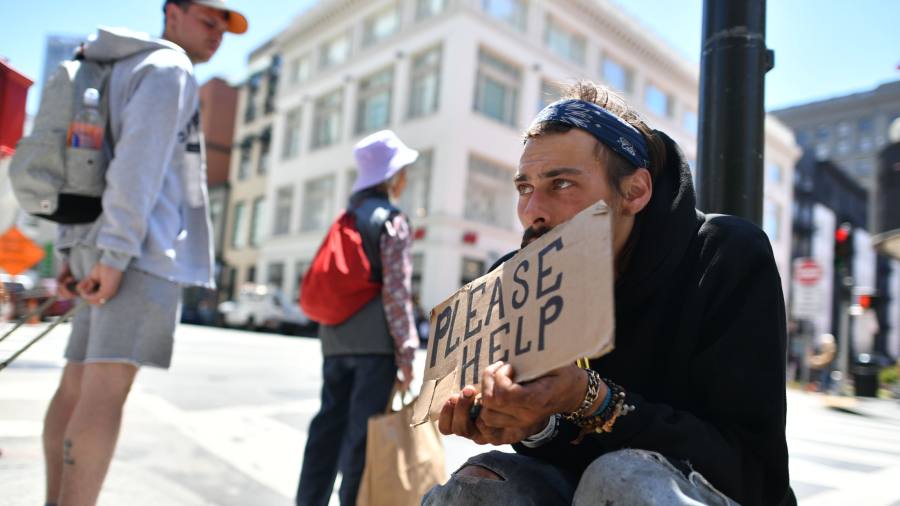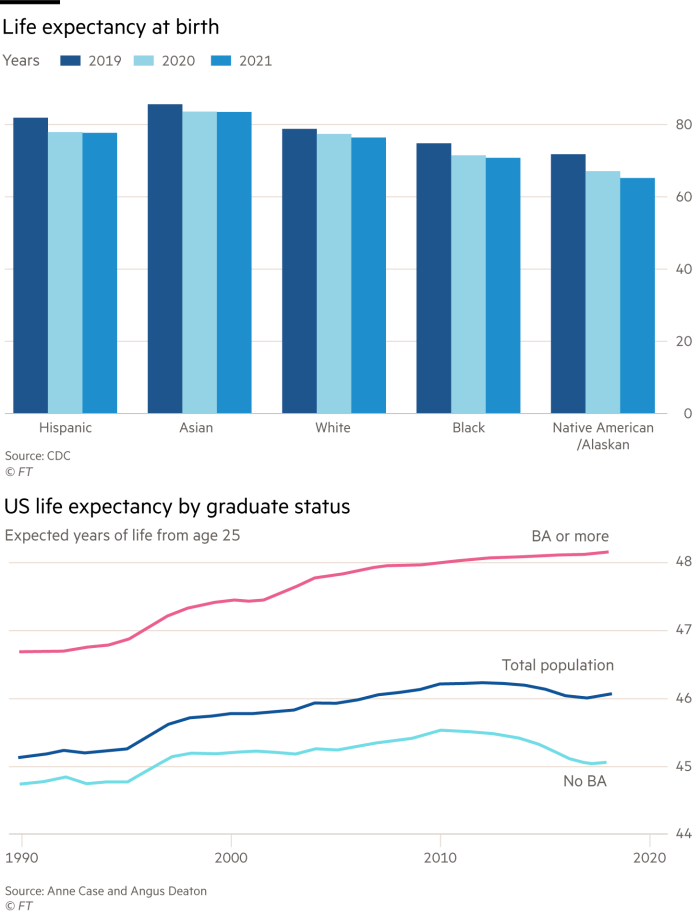
Life expectancy in the US had stalled even before the pandemic. Despite spending much more on healthcare on a per capita basis than other developed countries, Americans live shorter lives than citizens of France, the UK and even Chile.
The coronavirus pandemic has only sharpened the divide. US life expectancy fell from 78.8 years in 2019 to 76.1 in 2021, according to the National Center for Health Statistics. That is the largest two-year decline in almost a century. In France, the decline was half a year. In Japan, the figure actually rose.
Longevity matters as an indicator of the collective quality of life in a nation. It has big implications for business. Insurers and savings companies build their strategies around the life expectancies of customers, as do consumer goods groups.

America’s longstanding problems with obesity and opioids left a portion of its population vulnerable to coronavirus. Almost two-thirds of Americans hospitalised with Covid-19 were suffering from at least one pre-existing condition.
The outlook was bleakest for Native Americans and Alaska Natives. Their life expectancy plunged by almost seven years from 71.8 in 2019 to 65.2 in 2021. That is around where the national average stood in 1944.
Those statistics reflected poverty and discrimination alongside high rates of suicide, accidents and addiction in marginalised communities.
These days, education is a good gauge of longevity. Research from Anne Case and Angus Deaton of Princeton University found that Americans with a university degree can expect to live a decade longer than those who dropped out of high school.
This cuts across the race lines. Well-educated black Americans have narrowed the gap with white peers in life expectancy. But the educational divide between and within both race groups has widened.
Between 1990 and 2018, racial disparities in life expectancy shrank by 70 per cent. Educational disparities in longevity more than doubled. During the pandemic, those without a degree suffered from higher mortality rates.
People with tertiary educations were more likely to be to work remotely from home. They often had comprehensive employer-provided insurance.
Education, poverty and diet go hand in hand. Distributing Covid vaccines is relatively easy. To reverse a crisis of early deaths, US policymakers would need to reduce poverty, obesity, drug abuse and gun violence. The cultural and political barriers to that are daunting.
The Lex team is interested in hearing more from readers. Please tell us what you think of US longevity in the comments section below

